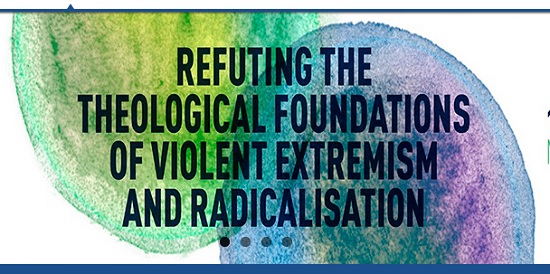Deakin forum to analyse the links between religion and violent extremism
Media releaseJustification of terrorism based on religious belief will be disproved at a two-day conference hosted by Deakin University in Melbourne from tomorrow.
Co-Chair of the Australasian Conference on Islam, Professor Fethi Mansouri, said the link between violence and religion, often made by terrorists and anti-Islamists alike, was as a consequence generally poorly debated in the wider community.
This year’s conference theme, ‘Refuting the Theological Foundations of Violent Extremism and Radicalisation’, will seek to use debate and research to refute the radical use of Islamic concepts.
The conference, at Deakin University’s Melbourne city campus, will be officially opened by Victorian Multicultural Commission Chair Helen Kapalos.
Professor Mansouri, Director of the Alfred Deakin Institute for Citizenship and Globalisation, said the theology of Islam was misunderstood in a modern world faced with the emergence of violent extremism.
“While the topic of Islam is a prominent feature in daily public discussions, recent research from ADI has shown that there is a lack of knowledge about Islam and Muslims among the community,” Professor Mansouri said.
“Our recent research showed that only two in 10 people are aware of basic facts about Islam – for example, that Jesus is a revered prophet in Islam and that Islam is an Abrahamic religion, as are Judaism and Christianity.
“There is no doubt that the emergence of violent extremism, in particular ISIS, has created a major political and security challenge not only to the world but also to the global Muslim community.
“Whatever position one holds regarding the causes of radicalisation, it is apparent that radicalised groups like ISIS and Boko Haram incorrectly use concepts of Islam to justify their actions and recruit Muslims.”
Conference Co-Chair Dr Zuleyha Keskin from Charles Sturt University said that the two-day program promises to provide fascinating and intense discussion.
“Existing studies on radicalisation and violent extremism generally deal with social, political and psychological factors,” Dr Keskin explained.
“What lacks is an authoritative Islamic response and refutation of radical use of Islamic concepts. While there is an emergence of some discourse in this area, it is still very thin.
“This places the conference in a prime position to facilitate further discussion of the subject matter at an intellectual interactive environment. These discussions will no doubt have a ripple effect in our society as they trigger activity and collaboration.”
Conference highlights include:
- How IS exploits the idealism of Muslim youth (Professor Greg Barton, ADI);
- Islam and Islamic religiosity in the West (Professor Fethi Mansouri, ADI);
- Islamic arguments used to justify radical ideology (Associate Professor Mehmet Ozalp, Charles Sturt University);
- Refuting the ideological foundations of violent extremism and radicalisation from an Islamic perspective (Dr Hassan Qadri, Chairman Supreme Council of Minhaj-ul-Quran International, Pakistan);
- The role of social media in promoting a radical narrative (Zekai Ergun, Charles Sturt University); and
- The causes of radicalism amongst Muslim youth: the real experience (Ahmed Kilani, Ramzi Elsayed, and Nail Aykan, Muslim Chaplains).
The full conference program is available at the Australasian Conference on Islam website.
The ‘Refuting the Theological Foundations of Violent Extremism and Radicalisation’ conference is presented by the Alfred Deakin Institute for Citizenship and Globalisation (ADI) in conjunction with the Islamic Sciences and Research Academy of Australia (ISRA), the Centre for Islamic Studies and Civilisation (CISAC), Charles Sturt University (CSU), The Australian Catholic University and the Australian Intercultural Society (AIS). The conference is supported by the Minister for Multicultural Affairs, Robin Scott.
Media contact: Katie Thompson 0418 839 638
Share this story

